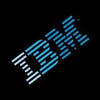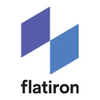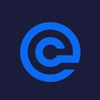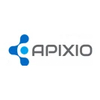Healthcare Analytics Companies
Healthcare analytics software enable healthcare companies to analyze their data and derive insights +Show More
| Products | Position | Customer satisfaction | |||
|---|---|---|---|---|---|
|
|
Leader
|
N/A
|
|
||
|
Merative Health Insights enables professionals to share health data and deliver insight to furthercare through hospitals, providers, insurers, researchers and patients.
Basis for EvaluationWe made these evaluations based on the following parameters; Customer satisfaction
Average rating
Market presence
Company's social media followers
100k-1m followers
# of funding rounds
0
Company
Type of company
public
Founding year
1911
|
|||||
|
|
Leader
|
N/A
|
|
||
|
Digital Reasoning enables automated understanding of human communication.
Basis for EvaluationWe made these evaluations based on the following parameters; Customer satisfaction
Average rating
Market presence
Company's number of employees
20-30 employees
Company's social media followers
10k-20k followers
Total funding
$100-250m
# of funding rounds
10
Latest funding date
January 27, 2020
Last funding amount
$10-50m
Company
Type of company
private
Founding year
2000
|
|||||
|
|
Leader
|
N/A
|
|
||
|
Ayasdi offers an enterprise-grade artificial intelligence platform that lets you create intelligent business applications and make fundamental discoveries with big data
Basis for EvaluationWe made these evaluations based on the following parameters; Customer satisfaction
Average rating
Market presence
Number of case studies
10-20 case studies
Company's number of employees
300-400 employees
Company's social media followers
10k-20k followers
|
|||||
|
|
Leader
|
N/A
|
|
||
|
Linguamatics, an IQVIA company, delivers market-leading Natural Language Processing-based AI platform for high-value knowledge discovery and decision support from text. We empower our customers to speed up drug development and improve patient outcomes by breaking down data silos, boosting innovation, enhancing quality, and reducing risk and complexity.
Basis for EvaluationWe made these evaluations based on the following parameters; Customer satisfaction
Average rating
Market presence
Company's number of employees
5-10 employees
Company's social media followers
1k-2k followers
Company
Type of company
private
Founding year
2001
|
|||||
|
|
Leader
|
N/A
|
|
||
Basis for EvaluationWe made these evaluations based on the following parameters; Customer satisfactionMarket presence
Company's number of employees
1k-2k employees
Company's social media followers
50k-100k followers
Total funding
$250-500m
# of funding rounds
4
Latest funding date
December 23, 2021
Last funding amount
$10-50m
Company
Type of company
private
Founding year
2012
|
|||||
|
|
Challenger
|
N/A
|
|
||
|
A machine learning solution for diagnostic healthcare.
Basis for EvaluationWe made these evaluations based on the following parameters; Customer satisfactionMarket presence
Company's number of employees
50-100 employees
Company's social media followers
10k-20k followers
Total funding
$50-100m
# of funding rounds
4
Latest funding date
November 14, 2019
Last funding amount
$10-50m
Company
Type of company
private
Founding year
2014
|
|||||
|
|
Challenger
|
N/A
|
|
||
Basis for EvaluationWe made these evaluations based on the following parameters; Customer satisfactionMarket presence
Number of case studies
1-5 case studies
Company's number of employees
200-300 employees
Company's social media followers
10k-20k followers
Total funding
$10-50m
# of funding rounds
6
Latest funding date
May 24, 2016
Last funding amount
$10-50m
Company
Type of company
private
Founding year
2009
|
|||||
|
|
Challenger
|
N/A
|
|
||
|
Lumiata Health AI Cost Prediction has demonstrated better accuracy than conventional methods in predicting healthcare cost for individuals, high cost patients, and groups.
Basis for EvaluationWe made these evaluations based on the following parameters; Customer satisfactionMarket presence
Company's number of employees
30-40 employees
Company's social media followers
4k-5k followers
|
|||||
|
|
Challenger
|
N/A
|
|
||
|
Supporting Comprehensive Continuum of Care Coordination
Basis for EvaluationWe made these evaluations based on the following parameters; Customer satisfactionMarket presence
Company's number of employees
30-40 employees
Company's social media followers
4k-5k followers
Total funding
$10-50m
# of funding rounds
3
Latest funding date
January 9, 2015
Last funding amount
$10-50m
Company
Type of company
private
Founding year
2011
|
|||||
|
|
Challenger
|
N/A
|
|
||
Basis for EvaluationWe made these evaluations based on the following parameters; Customer satisfactionMarket presence
Company's number of employees
50-100 employees
Company's social media followers
5k-10k followers
Total funding
$100,000-250,000
# of funding rounds
1
Latest funding date
November 30, 2021
Last funding amount
$100,000-250,000
Company
Type of company
private
Founding year
2006
|
|||||
“-”: AIMultiple team has not yet verified that vendor provides the specified feature. AIMultiple team focuses on feature verification for top 10 vendors.
Sources
AIMultiple uses these data sources for ranking solutions and awarding badges in healthcare analytics companies:
Healthcare Analytics Leaders
According to the weighted combination of 4 metrics
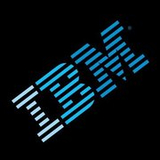




What are healthcare analytics
customer satisfaction leaders?
Taking into account the latest metrics outlined below, these are the current healthcare analytics customer satisfaction leaders:





Which healthcare analytics solution provides the most customer satisfaction?
AIMultiple uses product and service reviews from multiple review platforms in determining customer satisfaction.
While deciding a product's level of customer satisfaction, AIMultiple takes into account its number of reviews, how reviewers rate it and the recency of reviews.
- Number of reviews is important because it is easier to get a small number of high ratings than a high number of them.
- Recency is important as products are always evolving.
- Reviews older than 5 years are not taken into consideration
- older than 12 months have reduced impact in average ratings in line with their date of publishing.
What are healthcare analytics
market leaders?
Taking into account the latest metrics outlined below, these are the current healthcare analytics market leaders:





Which one has collected the most reviews?
AIMultiple uses multiple datapoints in identifying market leaders:
- Product line revenue (when available)
- Number of reviews
- Number of case studies
- Number and experience of employees
- Social media presence and engagement
What are the most mature healthcare analytics companies?
Which one has the most employees?





Which healthcare analytics companies have the most employees?
64 employees work for a typical company in this solution category which is 41 more than the number of employees for a typical company in the average solution category.
In most cases, companies need at least 10 employees to serve other businesses with a proven tech product or service. 10 companies with >10 employees are offering healthcare analytics companies. Top 3 products are developed by companies with a total of 300k employees. The largest company in this domain is IBM with more than 300,000 employees. IBM provides the healthcare analytics solution: IBM Watson Health
Insights
What are the most common words describing healthcare analytics companies?
This data is collected from customer reviews for all healthcare analytics companies. The most positive word describing healthcare analytics companies is “Easy to use” that is used in 400% of the reviews. The most negative one is “Difficult” with which is used in 171% of all the healthcare analytics reviews.
What is the average customer size?
According to customer reviews, most common company size for healthcare analytics customers is 1,001+ employees. Customers with 1,001+ employees make up 42% of healthcare analytics customers. For an average Healthcare solution, customers with 1,001+ employees make up 42% of total customers.
Where are healthcare analytics vendors' HQs located?
Trends
What is the level of interest in healthcare analytics companies?
This category was searched on average for 386 times per month on search engines in 2024. This number has decreased to 0 in 2025. If we compare with other healthcare solutions, a typical solution was searched 649 times in 2024 and this decreased to 0 in 2025.
Learn more about Healthcare Analytics Companies
Healthcare analytics companies provide insights into hospital management, diagnosis and patient outcomes by collecting and analyzing healthcare data.
Using healthcare analytics, organizations can improve their patient care decisions, services, and existing procedures. Healthcare analytics relies on the following data:
- cost and claims data so that insurance companies can optimize their policies and their pricing
- research and development data help organizations find innovative treatments
- clinical data that contain patient outcomes
Electronic health records (EHR) are the most important source of clinical data. They are a collection of patient and population health information in a digital format. Physicians use EHR to monitor patient care. EHR is a broader term that includes data on administrative and demographic information, diagnosis, treatment, prescription drugs, laboratory tests, billing, scheduling, claims etc.
Healthcare data is complex. The amount of healthcare data and potential benefits of leveraging healthcare data is increasing. These all make using advanced analytics in healthcare a valuable yet challenging activity.
Healthcare data is complex since it comes from a variety of sources and has to comply with government regulations. According to Seagate , the healthcare industry will have the most CAGR in the amount of data created, captured, and replicated between 2018-2025. The report highlights that the datasphere growth rate of the healthcare industry is 36% which is higher than manufacturing, financial services, media and entertainment industries. Therefore healthcare analytics has the challenge of interpreting a large volume of structured and unstructured data into insights that help enhance medical treatments while increasing the efficiency of healthcare services
Healthcare
- Reducing readmission costs: Due to the Hospital Readmissions Reduction Program (HRRP), patients don't need to pay for services if they have to be readmitted to the hospital. By implementing healthcare analytics, healthcare providers can gain accurate insights regarding the patient’s health for more effective decision making. Therefore healthcare providers can avoid readmissions.
- Reducing administrative cost: As in any other industry, analytics solutions can identify inefficiencies and help reduce costs.
- Supply Chain: Like every other industry, healthcare organizations can also benefit from predictive analytics tools to forecast supply-demand needs. According to Navigant survey, hospitals can preserve up to $9.9 million per year (approximately 17.8% of total cost) in supply chain costs if they use data analytics for their Economic Order Quantity(EOQ) and stocking decisions.
- Improving patient care: Healthcare analytics turns clinical information into actionable intelligence to support evidence-based decisions and improve patients’ care. For example, Kaiser Permanente, a large hospital chain in the US, implemented the HealthConnect system that facilitated data sharing across facilities. This system improved cardiovascular disease outcomes and saved $1 billion from reduced office visits and lab tests according to McKinsey.
Pharma R&D
- Drug Discovery: There is a vast amount of data sets of patents, scientific publications, and clinical trial data. With this data, researchers can identify unknown information in clinical trials that can potentially enhance the drug discovery process. For example,
- Project Data Sphere is an initiative that pharmaceutical companies share their data about cancer patients so that researchers can access the data to enrich clinical trials.
- Mayo Clinic launched its clinical data analytics platform to use insights derived from data to enhance healthcare and accelerate drug discovery. The platform uses AI and machine learning models to analyze large amounts of data sets.
- Predicting Patients’ Responses: Healthcare providers can use predictive analysis tools to predict outcomes of medicines. They make correlations between clinical notes and patients' data such as genome structure, symptoms, habits, historical diseases.
Insurance
- Risk Scoring: By using predictive modeling while performing healthcare analytics, insurance companies can give risk scores for each patient based on lab testing, biometric data, claims data, patient-generated health data. Therefore insurance companies can ask for a price that is dependent on the risk score of the patient.
Healthcare analytics can have a positive impact on both healthcare providers and the pharmaceutical industry. We've written about the benefits that healthcare companies achieve with healthcare analytics before, feel free to check it out.
According to an Accenture report, growth in the AI healthcare market is expected to reach $6.6 billion by 2021 with a CAGR of 40%. AI can be used to both automate the process of analytics and make analytics solutions more effective thanks to advanced analytics techniques that rely on machine learning. Potential impacts of AI on healthcare analytics are as follows:
- Natural Language Processing (NLP) can extract useful information from doctors’ notes, patients’ prior histories and related research papers. Amazons Comprehend Medical is already in use to extract data such as medical condition, medication, dosage from a variety of sources like doctors’ notes, clinical trial reports, and patient health records.
- Using insighs from millions of medical outcomes, machine learning techniques can be used to diagnose patients, suggest treatments and check prescriptions for potential errors.
- AI powered IoT devices can help individuals self assess their health conditions. Sensoria provides smart wearables (e.g. socks, heart rate monitors) that helps runners improve form and performance and to speed up recovery times after an injury. Another IoT example is AliveCor which provides personal health analysis. The device detects atrial fibrillation, bradycardia, tachycardia or normal heart rhythm. Detected issues can be shared with the user’s doctor.
Healthcare analytics vendors should be able to overcome the following problems that organization may experience:
- Data federation issues such as data silos
- Data quality issues such as inconsistent or variable definitions
- Analytics challenges
To learn more about these issues, check our article.

